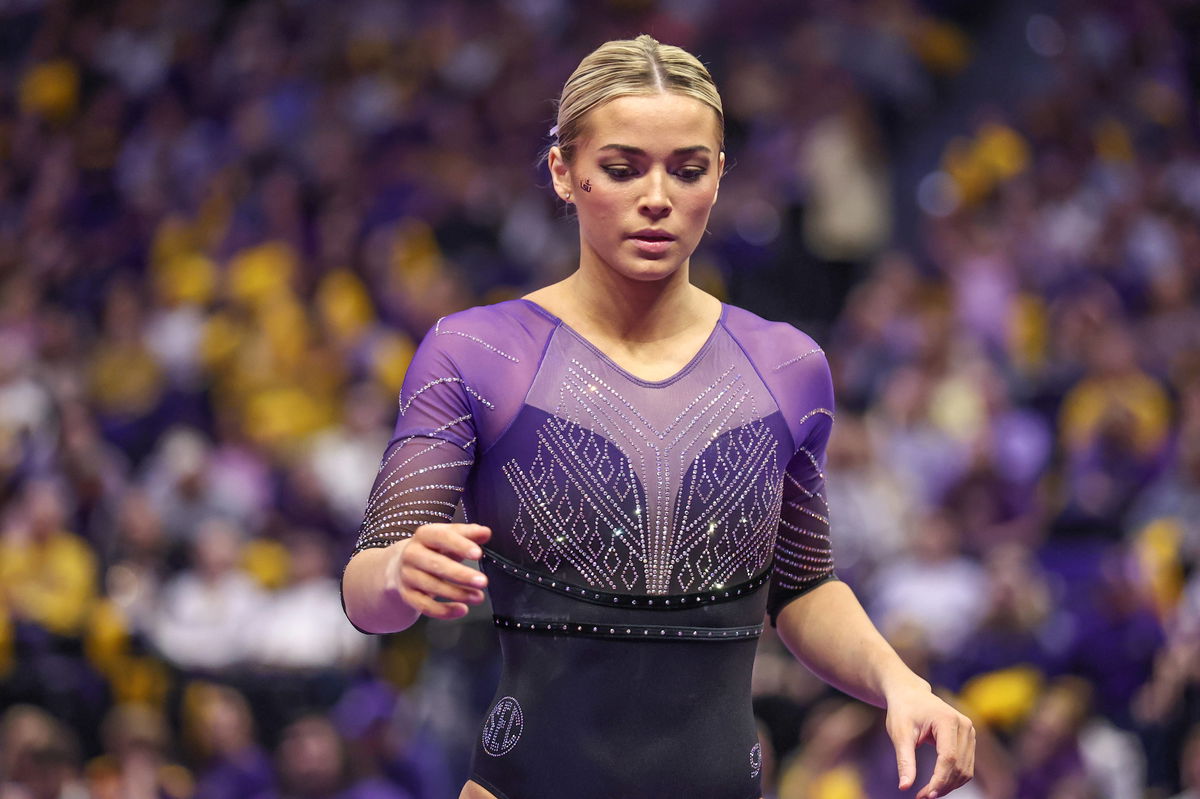
Imago
January 31, 2025: LSU s Olivia Livvy Dunne warms up prior to the floor rotation during NCAA, College League, USA Gymnastics action between the Missouri Tigers and the LSU Tigers at the Pete Maravich Assembly Center in Baton Rouge, LA. /CSM Baton Rouge USA – ZUMAc04_ 20250131_zma_c04_173 Copyright: xJonathanxMailhesx

Imago
January 31, 2025: LSU s Olivia Livvy Dunne warms up prior to the floor rotation during NCAA, College League, USA Gymnastics action between the Missouri Tigers and the LSU Tigers at the Pete Maravich Assembly Center in Baton Rouge, LA. /CSM Baton Rouge USA – ZUMAc04_ 20250131_zma_c04_173 Copyright: xJonathanxMailhesx
After years of silent endurance, Olivia Dunne has finally said aloud what many athletes only whisper: the fear of a mistake can feel apocalyptic. The former LSU gymnast, who has spent nearly two decades under the demands of elite training, recently broke from her usual reserve to describe the psychological weight that follows even the smallest misstep. In her own words, “Sometimes, if one thing goes wrong, it could feel like your life is ending.” That sentiment, she admitted, still lingers—long after the routines are over and the lights have dimmed.
Watch What’s Trending Now!
In an appearance on the What’s Your Story? podcast with Stephanie McMahon, Dunne spoke candidly about the aftermath of competitive mistakes, the warped sense of urgency they create, and how those feelings continue to shape her daily life.
She described waking up in a panic, wondering if she had missed a weigh-in, despite being “freshly out of gymnastics.” That ongoing tension, she said, reflects how the mental burden of the sport does not end with retirement. Even mundane decisions, like asking for water during practice, once carried an irrational but overwhelming sense of wrongdoing.
ADVERTISEMENT
It is within this fog of overcorrection and internal pressure that the harshest realities of sport reveal themselves. Dunne noted that, in those moments, “everything feels life or death.” The obsession with precision, she explained, can lead young gymnasts to believe their worth hinges entirely on performance. “So I would tell young girls that you are more than your sport,” Dunne emphasized, urging young athletes to resist that distortion. Her message was clear: identity should not be built on medals or scores, and mistakes must not be allowed to define a life.
Beyond the mat, Dunne also confronted the complications that come with name, image, and likeness (NIL) deals. She shared how the influx of opportunity brought with it a wave of unfamiliar and often untrustworthy attention. “There’s a lot of crazy, shady people that want to take advantage of young athletes,” she warned, recounting how she took deliberate time before choosing an agent. “I say no to more things than I say yes to.” That restraint, she explained, was necessary in an environment where quick decisions often lead to long-term consequences.
Dunne’s reflections challenge the polished image often projected by collegiate athletes. While the routines may seem effortless, the internal cost is seldom acknowledged. Her remarks offer an invitation to reconsider what support really looks like in women’s sports, not only in terms of physical resources but also in how athletes are prepared to handle fear, pressure, and imperfection. For Dunne, honesty about those struggles is not weakness. It is the only way forward. And facing the worst end of the rope, Livvy decided to take the necessary steps to cater to her mental well-being.
ADVERTISEMENT
Olivia Dunne builds her own mental health team after Simone Biles’ bold stand
The turning point arrived not on a podium or during a floor routine, but in a moment of watching someone else choose stillness over spectacle. When Simone Biles stepped aside at the Tokyo Games, citing mental strain over medals, the sports world reeled. For Olivia Dunne, then still charting her collegiate career, that moment did not read as retreat. It read as precedent. It offered a kind of permission, the rare and difficult one, to seek help before the damage is irreversible.
ADVERTISEMENT

Imago
Credits- Instagram/Olivia Dunne
Unlike Biles, whose Olympic campaign was anchored by professional guidance from Dr. Marcia Faustin, Dunne found her compass much closer to home. Her aunt, Laura St. John, became the person she turned to not just in crisis, but for continuity. “She was my mental health coach… she changed my career,” Olivia admitted, her voice catching slightly as she reflected on the relationship. The influence was not episodic. It was foundational. Olivia credits those private conversations and personal grounding for her ability to stay competitive in a sport known less for leniency than for relentless pace.
Today, as Dunne steps away from gymnastics following the conclusion of her NCAA journey, she does so with a sense of completeness. In acknowledging the emotional dimensions of elite performance, she has chosen to leave not only on her own terms but with the self-awareness that Simone’s decision once modeled. “To this day, I talk to her, and she helps me bring my dreams to life,” Dunne shared. In that quiet admission, one sees the legacy of Simone Biles refracted through another athlete’s resolve to listen inward.
ADVERTISEMENT
ADVERTISEMENT
ADVERTISEMENT
ADVERTISEMENT